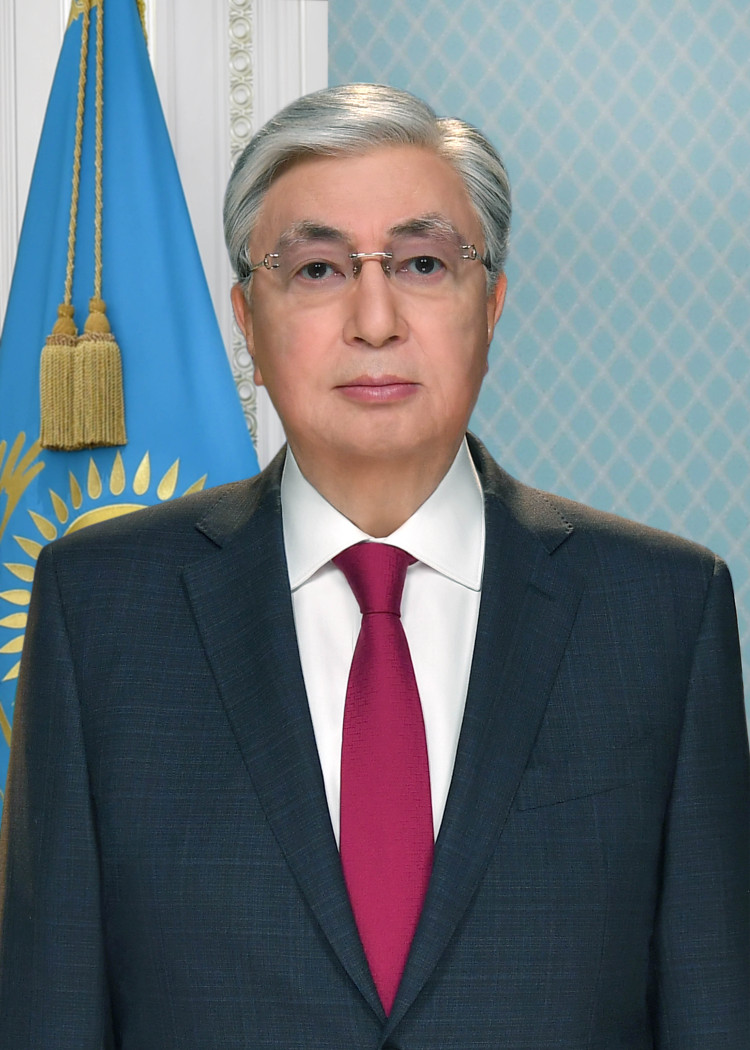
Kazakhstan To Join the Abraham Accords, Signaling Opportunity in Central Asia
By Samuel Ben-Ur
Kazakhstan has reached out to the United States in an unprecedented fashion — by improving relations with Israel. Prior to a November summit between the United States and five Central Asia countries, Kazakh President Kassym-Jomart Tokayev approached Washington and reportedly expressed his desire to upgrade ties with Israel by joining the Abraham Accords.
This addition to the Accords — a peace deal President Donald Trump struck in his first term between Israel and several Muslim nations — will be the first since Sudan joined in January 2021, and helps fulfill one of Trump’s foreign policy ambitions. A trade deal with the United States followed within days.
Building on an Existing Friendship
Kazakhstan and Israel have enjoyed warm relations since 1992, shortly after the fall of the Soviet Union, so Astana’s accession is symbolic in many respects. In contrast, the countries that joined previously had never before recognized Israel.
Nevertheless, Kazakhstan’s accession has the potential to reinvigorate the Accords and expand U.S. cooperation with Central Asia. Astana provides about 25 percent of Israel’s total oil imports, and trade between the two countries grew tremendously until 2024, when it slowed in the wake of the war between Israel and Hamas in Gaza.
Beyond trade, Israeli Prime Minister Benjamin Netanyahu visited Astana in 2016, and Tokayev received the speaker of the Knesset, Amir Ohana, in 2025. Kazakh officials have visited Israel frequently in the past, while the foreign ministries of Kazakhstan and Israel work together regularly on issues ranging from defense to agriculture.
Room for Growth in the Abraham Accords
There are signs that Kazakhstan may be the first of many Central Asian nations to join the Abraham Accords. Azerbaijan and Uzbekistan have been mentioned as potential candidates. Israel and Azerbaijan already share robust strategic cooperation in defense and energy, and Uzbekistan has quietly expanded ties with Jerusalem. Kazakhstan and Uzbekistan are also the lone Central Asian countries with embassies in Israel.
Kazakhstan’s impending membership potentially adds momentum to the Accords. Prior to Astana’s announcement, the future success of the deal was in question. But Washington and Jerusalem’s true prize, Saudi Arabia, remains elusive. Should Kazakhstan, Azerbaijan, and Uzbekistan — all Muslim-majority countries — all join, it might become politically safer for others to join.
An Opportunity for the U.S. To Increase Its Influence in Central Asia and Expand the Accords
Kazakhstan’s decision to join the Accords comes alongside a trade deal with the United States, broker of the peace plan. Expanding the Abraham Accords has been a clear goal of Trump’s second term, and Kazakhstan’s membership will likely curry favor with this administration.
The Central Asia nation borders both Russia and China and has a large supply of untapped rare earths and minerals. The United States and Kazakhstan signed a memorandum of understanding during the summit, pledging to increase cooperation over critical minerals. And on November 6, the State Department announced a series of commercial deals with Astana, including the sale of $7 billion in Boeing airliners and billions more in rail equipment.
This sets a strong precedent for future win-win deals for the United States. In exchange, partly for normalizing relations with Israel — along with cooperation on energy and critical minerals production — the United States can offer investment and security arrangements to other nations. Uzbekistan has large reserves of critical minerals and is interested in countering Islamist terrorism, as it shares a border with Taliban-run Afghanistan. Azerbaijan is central to the Southern Gas Corridor, which delivers Caspian gas to Europe and can help reduce European reliance on Russian exports.
In all, Kazakhstan’s decision is good for Israel — and the United States.
Samuel Ben-Ur is a research analyst at the Foundation for Defense of Democracies (FDD). For more analysis from Sam and FDD, please subscribe HERE. Follow FDD on X @FDD. FDD is a Washington, DC-based, nonpartisan research institute focusing on foreign policy and national security.






